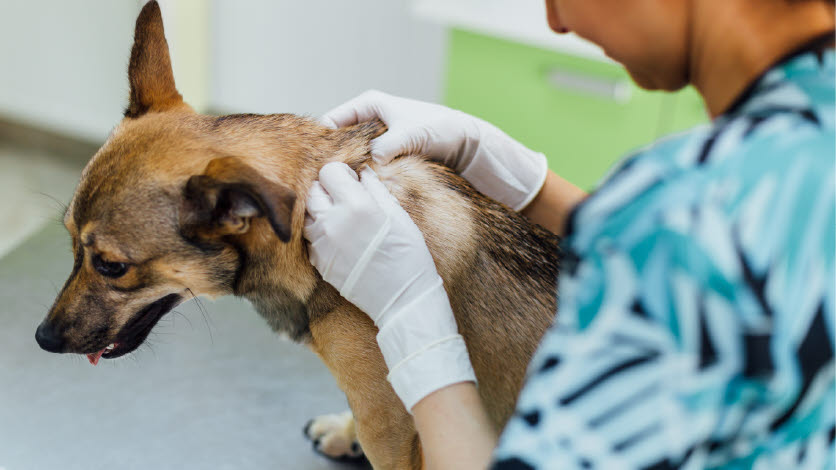Veterinary dermatology specialists

What is dermatology?
Dermatology is the study of the skin. The skin is the largest organ in the body and the first line of defence against bacteria and injury. Dermatology is concerned with the health of skin and associated disorders of the hair, ears, nails/claws, mouth and mucous membranes.
What is a veterinary dermatology specialist?
Veterinary dermatology is a discipline of veterinary medicine that deals specifically with the diagnosis and treatment of skin diseases and any other related skin disorders in animals. Veterinary dermatologists are specialists. This means they have completed extensive and rigorous training beyond the initial Doctor of Veterinary Medicine (or Bachelor of Veterinary Science) qualification to become a general practice veterinarian. Their additional studies often require them to publish research articles before undergoing examinations to obtain their specialty licensing and certification to practice as a dermatology specialist.
Veterinarians in general practice may contact dermatology specialists to consult with them on specific cases, or in more complicated cases, they may choose to refer them to a dermatology specialist for ongoing care. Dermatology specialists will have unique training in the specialised diagnostic procedures required to diagnose skin problems as well as having the surgical equipment and drugs needed for more complex issues.
How can a dermatologist help my pet?
Veterinary dermatology deals with a wide range of skin ailments affecting animals. For example, these might include allergies, skin cancer, congenital and autoimmune skin diseases and disorders, fur loss or parasitic infections of the skin.
Veterinary dermatologists are proficient in the diagnosis and treatment of cysts, tumours and skin cancers together with chronic infections and inflammatory conditions of the ears. Specialised diagnostic procedures may include microscopic skin examinations, skin biopsy, cytological smears, allergy testing or fungal cultures among others. They may take skin scrapings from your pet to examine.
A veterinary dermatologist will work with you and your pet to ensure that the skin condition is treated in an appropriate and timely manner and as a result, your pet’s quality of life will be improved.
Some skin disorders are curable whilst others are chronic or incurable. A veterinary dermatologist will work with you to develop and manage an ongoing treatment plan to treat chronic or incurable skin disease in your pet.
Treatments that veterinary dermatologists may offer include topical, injectable, medicinal or surgical procedures. Cryosurgery involves freezing, laser surgery or excisional surgery may be performed.
Why is my dog itchy?
One of the most common problems seen in veterinary practice is an itchy dog. Anything from flea bites to environmental allergies can cause significant itchiness in your dog. Allergies to something in your pet’s environment may manifest as a condition known as atopic dermatitis.
This commonly affects areas around the eyes and mouth, inside the ears, the armpits, across the abdomen, around the anus or across the paws and legs. It is a hypersensitivity reaction to commonplace environmental substances such as pollen from plants and grasses as well as insects such as cockroaches and dust mites.
Some dogs may also develop an allergy to protein sources within their food (chicken, lamb and beef are the most common). It is extremely rare for a dog to have an allergy to grains in their diet and they should not be fed grain-free food as it can potentially lead to serious heart disease.
If left for a prolonged period of time, itchy dogs may become highly uncomfortable and frustrated, causing hair loss, inflammation, reddening and thickening of the skin. Owners can also become frustrated by an itchy dog as they are kept awake at night by the scratching!
Dogs will continue to scratch, itch, chew and lick affected areas until treated. It is extremely important to address the source of the itchiness and your veterinarian will help you do this. If it is not simply an allergic reaction and your pet is unresponsive to initial treatment attempts made by your general practice veterinarian, you may be offered a referral to a veterinary dermatologist for further investigation into the source of the itching.
